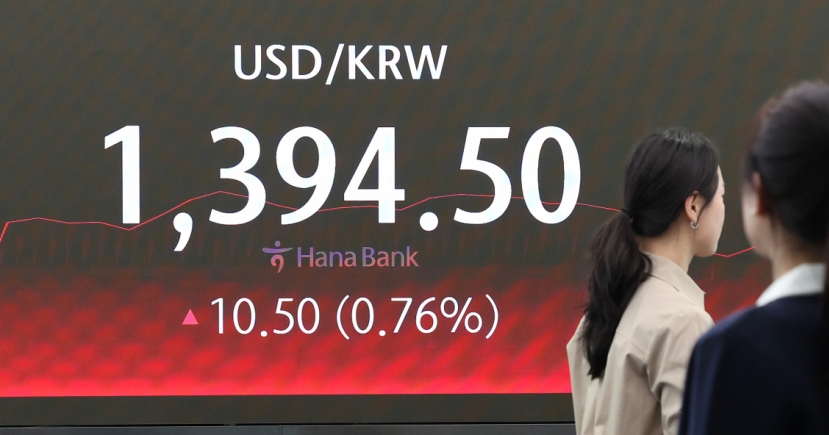Finance
FSS to intervene in banks' unfair lending practices
[THE INVESTOR] South Korea’s financial watchdog will crack down on unfair practices by banks when calculating interest rates for household loans and establish a system for consumers to compare bank loan rates, it said on Dec. 13.
The Financial Supervisory Service convened a meeting with vice presidents of major commercial banks in order to discuss measures to improve the system for calculating household loan spreads – the additional interest due on top of the basic rate that enables banks to cover costs and make profits.
 |
The meeting was held a day after Korea’s top financial regulator Yim Jong-yong vowed to make all-out efforts to reduce the risks posed by the country’s record household debt in light of an expected rate increase by the US Federal Reserve this week.
Although Korea’s benchmark borrowing rate remains at an all-time-low of 1.25 percent, consumer complaints about higher interest rates for mortgages and other household loans have been rising since early November, after Donald Trump won the US presidential election.
At the time, commercial banks took higher prices of bank debentures as an excuse for growth in mortgage and loan rates.
Interest rates for fixed-rate loans combine the rate banks have to pay to borrow money and the spread set by each bank. Rates for floating loans add up bank spreads and the Cofix rate, a monthly benchmark interest rate.
Banks estimate operational costs, risk premiums, target profit ratios and adjustable ratios when they set their spreads. If a bank wants to increase its target profit ratio at a higher level than before, it should raise the spread for its loans.
Due to growing consumer complaints, the FSS recently checked banks’ spread calculations and found that they were not aligned.
“The biggest difference was in target profit ratios aimed at by the banks,” said an FSS official. “The FSS is planning to apply additional standards and factors to the calculation of spreads in order to help reduce the burden of high interest rates on consumers.”
The watchdog will also revise the current rate disclosure system run by the Korea Federation of Banks. Currently, every bank is required to disclose the interest rates of all their products on their homepages and the homepage of the KFB. But the system has not been widely used by consumers because it is difficult to access when they actually consult with bank clerks about borrowing loans.
“The watchdog and banks are discussing measures to establish a system where consumers can find and compare interest rates of all bank loans and mortgages on the same conditions,” the official said.
However, the banking industry does not welcome the FSS move, describing it as damaging banks’ profitability.
“Such a move is interpreted as the authority intervening in the price policies of banks,” said a spokesman at a major commercial bank, who asked for anonymity. “It is against the free interest rate market, which can add to the worsening margins of banks amid prolonged low growth and rates.”
The financial watchdog is also paying attention to the credit card industry, aware of the rapid growth in card loans recently with high rates of around 9 percent to 25.9 percent.
FSS Gov. Zhin Woong-seob met with CEOs of eight credit card firms on Tuesday and urged them to refrain from excessive marketing activities to sell card loans.
“The watchdog will examine firms’ card loan sales practices and the process to screen borrowers’ financial capabilities within the next three months,” Zhin said. “When market rates are picking up, increases in card loan issuances can worsen quality of the country’s massive household debt.”
By Song Su-hyun/The Korea Herald (song@heraldcorp.com)








